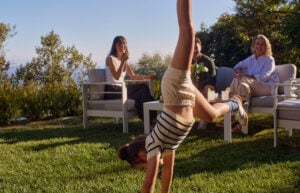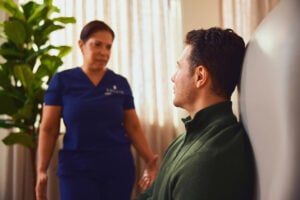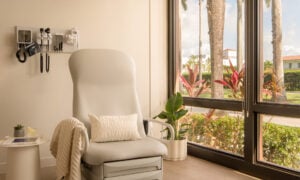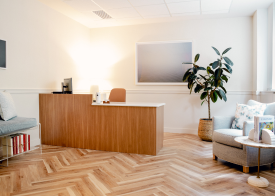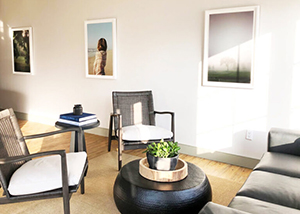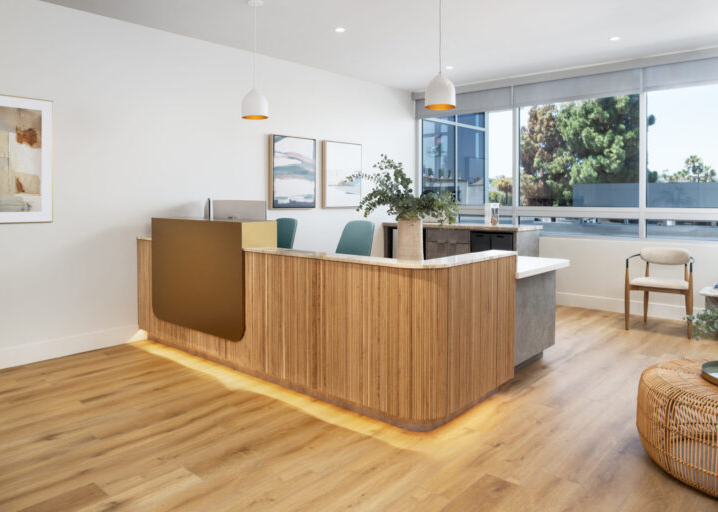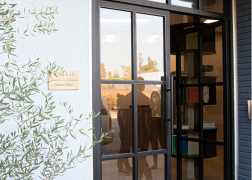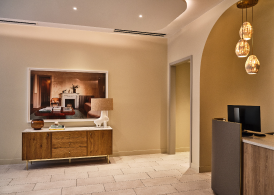When were you first diagnosed with endometriosis?
I was diagnosed in December 2019 with stage four endo. I had active pain since I was a teenager that I just thought was normal. I tried for years to figure out what was wrong and had even been told by my OBGYN at the time of my surgery that she didn’t think I had endo, but once I went in for surgery, it was everywhere.
Without any real cure for it, how have you been able to treat it and mitigate your pain? Is there anything holistic you’ve discovered that you’d recommend?
Prior to my diagnosis, I was sent to pelvic floor therapy and I placed an IUD in my uterus to stop my periods. Unfortunately, neither of these things helped and only caused more pain and discomfort. Now, since being diagnosed and having it come back, I’ve been seeking a lot of help from different people around the world. Australia and England are doing great research on dietary things that can really help and I’ve been implementing those because I don’t want to have another surgery. I don’t want to create more scar tissue that then can create more endo, and I don’t want to take my uterus out. Diet has really worked in lessening the intensity of the pain. Also, I have been seeing a physical therapist that helps massage and lessen the inflammatory flare ups.
“The biggest misconception is that it's a painful period. Normal periods do not make you throw up. Normal periods do not make you not be able to leave your house for four days. Normal periods don't make it so you can't walk, talk, or breathe.”
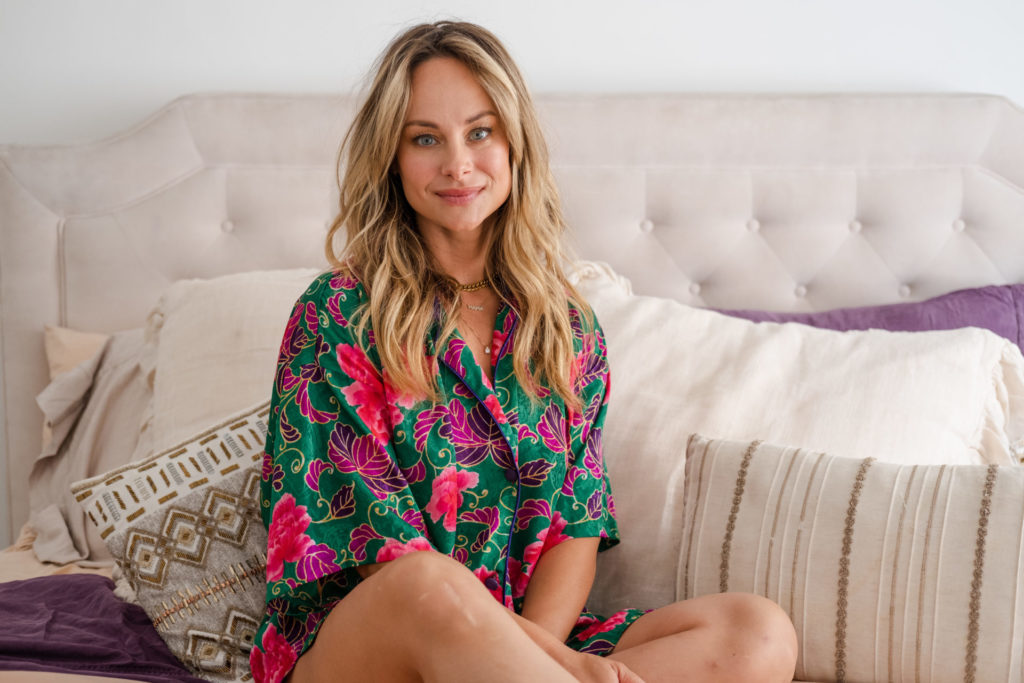
In what ways has dealing with it had an effect on your life—from your career, to your fertility, to your emotional wellbeing?
I’m going to be fully honest about this, because I don’t think enough people are honest about chronic illnesses. It heavily impacts my mental health. I have no control over it. And because the episodes or flare ups can be so debilitating, it makes me unreliable as a professional. That’s been really hard for me to contend with as a woman wanting to have integrity and accountability for what I do. So it’s quite depressing when I do have an episode. When I say I have an autoimmune disorder, people say, “Oh my gosh, oh, wow. How do you handle that?” As soon as I say endometriosis, they’re like, “Oh, well, you’re fine. It’s a painful period, get over it.” So the disrespect, not acknowledging what’s actually happening in my body is crazy making. I have to really be patient with myself and honest with the people I’m working with to try and educate them without feeling like a victim. It’s also really hard in partnership, since it makes sexual intimacy painful and can also make you infertile. If you want to be in partnership and create a family but have this disease you’re contending against, how can you expect somebody to want to be with you? Now that I know what I have, I am consciously working to not disassociate or escape from my body. I want to be in it and overcome it. But it can be exhausting and really challenging. Grace and acceptance has been liberating and in fact helps lessen the emotional/mental impact.
Have you been able to find or maybe even create a sense of community since your diagnosis?
I’ve had a really hard time with social media because it’s our highlight reel. But just in this past month, I’ve started talking about having endometriosis and have been holding long form conversations on Instagram. I’ve been able to connect with women all over the world, and using my platform to talk about it has been liberating. It’s given me hope seeing and hearing other countries invest the time and energy to educate women and medical professionals on this. It’s been nice to bring language around uniting us that we’re not victims, we’re not complaining, we’re just trying to understand and heal. The more we can be vocal about it, the less alone everybody feels about it.
Can you describe any moments of humor that have happened along the way?
Now that I know I have endometriosis, it is so funny to me the conversations I have with people in the medical field. I literally went to the doctor the other day because I had a swollen node. We’re sitting there talking and he was like, “Well, I don’t know what it could be.” And I was like, “Well, I do have an autoimmune thing.” And he was like, “Oh, what do you have?” When I shared I had endometriosis, he was like, “No that’s not it.” I’m just trying to share what happens in my body and it feels crazy to be dismissed so quickly by a medical practitioner. I find that quite humorous.
“It heavily impacts my mental health. It's also really hard in partnership, since it makes sexual intimacy painful and can also make you infertile. If you want to be in partnership and create a family but have this disease you're contending against, how can you expect somebody to want to be with you?”
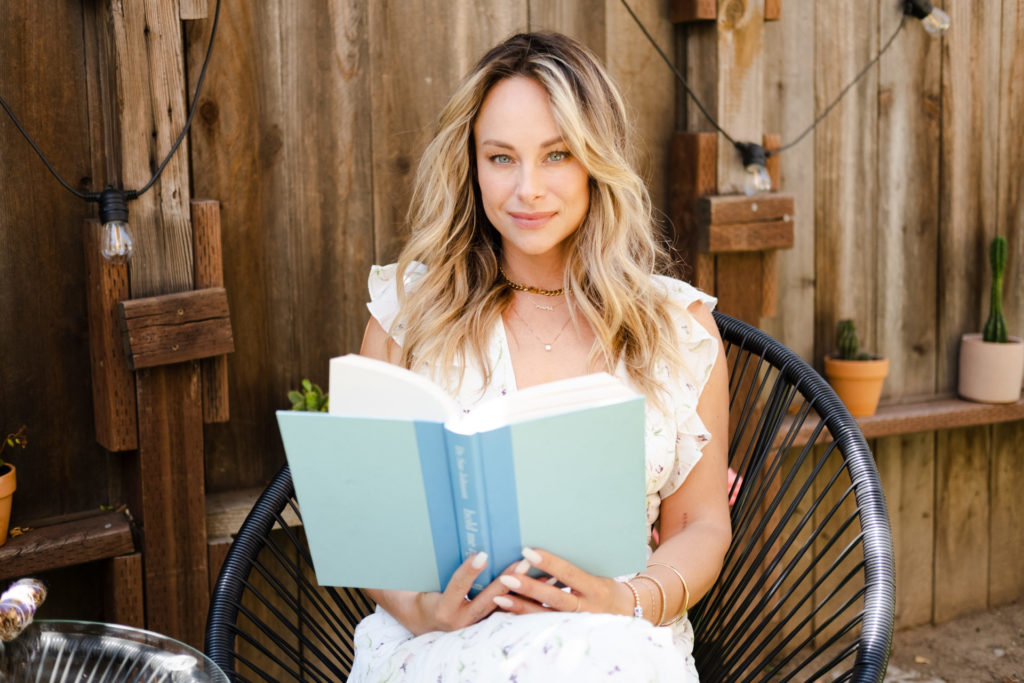
What is the biggest misconception about endometriosis, and is there anything you wish you could help people understand better?
I think the biggest misconception is that it’s a painful period. Normal periods do not make you throw up. Normal periods do not make you not be able to leave your house for three, four days. Normal periods don’t make it so you can’t walk, talk or breathe. So that’s the one thing I really wish we could get away from. It is an ongoing battle. So when people are just like, “Well, just stop your body from producing periods. Or get over the fact you can’t have a baby, or take your uterus out.” That’s not the compassion piece we need right now. Some people are really starting to have a dialogue that this can be helpful with certain nutritional awareness. So anybody that’s in a relationship with somebody who has endometriosis … just know that person is not trying to fall victim to it.
Considering how painful it can be, and that it affects as many as 190 million women globally, why do you think so few men know what endometriosis is, and even fewer talk about it?
Do they really care about what goes on inside our bodies? Look at the world right now. It is so unfortunate that the world would not be able to survive if it wasn’t for our wombs, yet the language around women’s health is so dismissive. I think the men and research show that in their lack of awareness.
If there’s been any silver lining to having it, what would you say it is?
Awareness of my body. I’ve been focusing on having gratitude for what I have. And the gratitude of having endo is: I have to be really conscious in mind and body daily. I’ve always talked about our moon cycles, but now I’m operating more from that timeline and it’s allowed me to slow down, be more compassionate with myself, and more powerful in my purpose. I have to be really organized, but it’s the difference between me functioning versus debilitating pain in bed for a week.
What’s the latest update in your battle with endometriosis?
It’s back in the same exact place as it was before I had surgery two years ago. In the past few months, I’ve changed my diet, weekly PT appointments and acupuncture has drastically lessened the pain. I have had wins – I’ve been vertical during my period. So something’s working. Whether that’s my patience with myself or the knowingness around it, at least I know now I’m not crazy. I know what it is now. Doctors don’t hold the power now, I hold the power in the knowing. It’s quite liberating if I focus on what’s best for me and my body.
How has Sollis played a part in your life?
I was traveling in Mexico and urgently needed a Fit to Fly certificate to board my plane. Sollis was able to take care of it within a matter of hours so I could safely get home. I have yet to use Sollis for my endometriosis, but it can be so painful, and I know Sollis can help with pain management. It’s also useful to have quick access to an ultrasound, just in case the pain you think is period-related is something more urgent like a cyst or an ovarian torsion.
Any good words to live by?
“Just for today”
